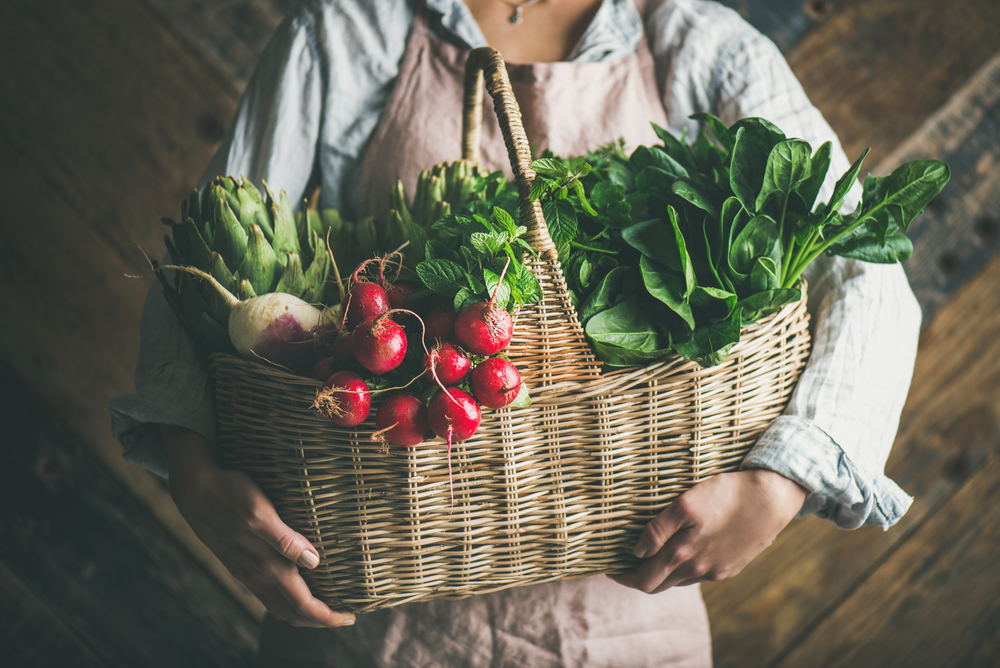Your Guide To Greens: Vitamins, Minerals, and Health Benefits
We all know that eating lots of fruits and vegetables is good for our health, and greens, specifically, have numerous benefits – especially for older adults. Veggies are generally low in calories and packed with vital nutrients. But what makes kale, spinach, arugula, broccoli, and other greens so special?
Studies show that eating leafy greens can help slow cognitive decline, and some varieties can even help prevent heart disease, inflammation, cancer, and osteoporosis. If you’re trying to work more greens in your diet, here are nine healthy greens to consider. Please note this list is not all-inclusive.
Kale
Kale is a dark, leafy green that rules the nutrient-dense roost. You can roast, steam, or sauté this superfood and enjoy it in a salad, soup, side dish, or smoothie.
Benefits:
- It’s a wonderful source of Vitamins A, D, C, and K, as well as beta-carotene and lutein antioxidants, fiber, potassium, and calcium.
- Research suggests that kale supports brain health and helps prevent heart disease, lowers cancer risks, contains anti-inflammatory agents, and promotes bone health.
Spinach
Spinach is a dark leafy green that’s popular in dips, salads, and wraps. It’s especially easy to include in smoothies, as it doesn’t have a very strong taste and can be added to delicious fruits or milk.
Benefits:
- This native Persian vegetable contains protein and fiber and packs in many essential vitamins and minerals, including Vitamins A, C, K, B6, B9, E, folic acid, iron, and calcium.
- Other nutrients include potassium, magnesium, and iron.
- It has cancer-fighting antioxidants, lowers risk for macular degeneration, promotes heart disease prevention, and helps with blood pressure stabilization.
Arugula
Arugula hails from the Mediterranean and is a dark, leafy green known for its sharp, peppery taste. You can add it to salads, eat it alone, toss it into a pasta dish, or use it as a pizza topping!
Benefits:
- Filled with essential nutrients such as calcium, potassium, Vitamin C, and folate (Vitamin B9).
- Promotes bone health, muscle and nerve function, heart health/function, immune system support, and iron absorption.
- Folate is particularly important during pregnancy.
Asparagus
This tasty green veggie is especially delicious when grilled and can be added to salads, pizzas, pasta, and eggs!
Benefits:
- It’s packed with antioxidants, protein, fiber, Vitamins C, A, K, and E, as well as folate, potassium, zinc, iron, and phosphorus.
- It helps lower the risk of chronic diseases such as cancer, promotes bone and heart health, and has anti-inflammatory properties.
Beet Greens
You’re probably not alone if you didn’t know you can eat the healthy greens at the top of beets. Guess what? They’re also a superfood!
Benefits:
- These greens contain fiber which promotes digestive health and lowers blood sugar and cholesterol.
- Also contains Vitamin A, which supports bone health, reduces certain cancer risks, and promotes immune system health.
- Has Vitamin K, which assists in blood clotting, promotes bone health, and helps wounds heal faster.
Bok Choy
Bok Choy’s leaves are thick and dark green. This popular Chinese cabbage is often used in stir-fries (but you can really put it in anything!).
Benefits:
- Contains Vitamins C, E, and K, beta-carotene, and folate.
- Has fiber which promotes digestive health, and selenium helps decrease inflammation and stunts tumor growth.
- Iron, phosphorus, magnesium, and calcium promote bone strength.
Broccoli
Even if you’re not a big leafy green fan, you can still get wonderful nutrients from broccoli! This popular cruciferous vegetable tastes good raw or cooked (or with cheese on top!).
Benefits:
- Broccoli has been called a superfood due to its high level of potent nutrients, including protein, fiber, Vitamins A, C, K, B9, potassium, phosphorus, and selenium.
- It’s widely appreciated for its cancer-fighting antioxidants such as lutein and sulforaphane.
- Other vital benefits include digestive health, immune system boost, and heart disease prevention.
Cabbage
Cabbage is a leafy green vegetable that also grows in red and white varieties. Many cultures and countries enjoy it in soups, salads, sauerkraut, casseroles, and as a roll.
Benefits:
- This abundantly available vegetable contains numerous vitamins and minerals such as Vitamins A, C, K, beta-carotene, potassium, magnesium, zinc, riboflavin, and folate.
- Also a good source of protein and fiber.
- Health benefits include anti-inflammatory agents like glutamine which reduces joint pain, allergies, and fevers.
- It also promotes bowel regularity, heart and skin health, and eye health, and cataract prevention.
Collard Greens
Collard greens stand out among the pack for their unique texture and bitter taste. You can shred them into casseroles, add them to soup and chili, or mix them into salads.
Benefits:
- These leafy nutritional staples contain calcium, Vitamins A, C, K, and folate.
- Calcium promotes bone strength and is a leading source of Vitamin K, which plays a key role in blood clotting.
Overall, eating one or more servings of healthy greens each day will put you on the path toward a healthier future!
For more articles like this, click here!



